From suicide survivor to mental health advocate
Former Major League Baseball player Drew Robinson shares his story of hope and recovery.
By "healing out loud," Robinson hopes to encourage others to seek support when they need it.
In the spring of 2020, Drew Robinson seemed to have it all. He was starting his 11th season as a professional baseball player. He had a loving family and fiancée.
But on the inside, he was struggling. And one night, he attempted suicide.
Afterward, unsure why he was still alive, he asked himself if he still wanted to be. The answer was yes.
After receiving intensive physical and mental health care, he played baseball again the following season. He retired in July 2021 and became a full-time mental health advocate. His mission is to inspire people, especially professional athletes, to get the mental health support they need.
When Don Mordecai, MD, Kaiser Permanente’s national mental health leader, heard Robinson's story, he was impressed with his courage and authenticity — and with his commitment to helping others who need mental health support.
In 2021, an estimated 12.3 million American adults had serious thoughts of suicide. But suicide is preventable — and it’s important that we talk about it.
“Many people dealing with depression and suicidal thoughts are burdened with shame and secrecy. They often feel like they can’t talk about what they’re going through with anyone else,” said Dr. Mordecai. “Drew is sharing his story to help reduce the stigma related to suicide.”
Robinson answered questions about his experience and how people can help reduce the stigma related to mental health challenges.
What inspired you to become an official mental health advocate?
I really like the quote “I'm trying to heal out loud so others don’t die in silence.”
I don’t want anyone else in the world to feel the extreme despair I felt without being able to talk about it with someone. I share my experience hoping to help people reach out long before they get to such a dark place.
What do you want people to understand about your experience of surviving a suicide attempt?
I came to realize that I didn’t want my whole life to end. I felt miserable and hopeless, and I just wanted to put an end to my pain, not my life.
I think that’s true for a lot of people who attempt suicide. They just want their trauma, or their memories, or their hopelessness to end.
Since my attempt, I’ve still fallen into depressive episodes. One was so extreme that a big part of me wanted to try again. But I leaned on the realization that however uncomfortable I may be in my current phase of life I know that the pain I’m in isn’t my whole life.
I’ve learned to trust the future and to have faith that when things look dark, they won’t always be that way.
What stopped you from reaching out for help?
That's one of the more puzzling parts of my story. I actually did reach out for help. I was talking to a therapist before the 2020 baseball season. And during spring training I had sessions with our team’s sports psychologist.
I knew I was struggling. And while I was honest enough to admit I was doing pretty badly, I never admitted just how bad it was. I didn’t have the guts to come out and say that I was seriously considering suicide.
I was doing everything I could without asking for what I really needed. That’s the part I regret the most. That’s why it makes me so proud and so happy now when I see people willing to be totally honest and ask for the help they need.
What can we do to help reduce the stigma around mental health challenges?

Robinson with his therapy dog, Ellie. “She’s my natural antidepressant,” he said. “She goes everywhere with me.”
I think a lot of the stigma starts with a lack of empathy. I think we all lack empathy at times. But even if we don’t understand what someone else is going through, that doesn't mean it’s okay for us to judge them for what they’re feeling.
Listening is so important when it comes to mental health challenges. Most of the time people are just trying to be heard and accepted. They just need some guidance and some love to help them get to a more stable place.
What do you do to prioritize your mental health and self-care?
I believe passionately in preventive work when it comes to mental health. I’ve committed to regular therapy sessions. And I’ve gone through some phases where I had a pretty intensive therapy regimen. I also supplement therapy with regular talks with family members, friends, or coaches that I trust.
Working out, eating well, and prioritizing sleep have also been really important for me. I also journal regularly.
Self-acceptance, self-belief, and self-love are all crucial. I try to be a little bit more accepting of myself. I understand that I'm not going to be at 100% every day, and that’s totally OK.
How to get the mental health help you need
“Whether you’re thinking about suicide or are concerned about someone else, Drew’s story shows the importance of talking about it,” said Dr. Mordecai. “If someone confides in you, first just listen. Then, encourage them to seek help.”
Help and resources are available.
Suicide hotline
If you’re thinking about suicide, are worried about a friend or loved one, or would like emotional support, call or text the 988 Suicide & Crisis Lifeline. A chat option also is available at 988lifeline.org. You’ll be connected directly to a crisis-trained counselor. Support is available 24/7. It’s free and confidential.
Mental health emergency
If you or someone you know needs immediate emergency medical services for a mental health crisis, call 911 or go to the nearest emergency room.
Mental health care
Kaiser Permanente members can get connected to care at kp.org/mentalhealth.
-
Social Share
- Share From Suicide Survivor to Mental Health Advocate on Pinterest
- Share From Suicide Survivor to Mental Health Advocate on LinkedIn
- Share From Suicide Survivor to Mental Health Advocate on Twitter
- Share From Suicide Survivor to Mental Health Advocate on Facebook
- Print From Suicide Survivor to Mental Health Advocate
- Email From Suicide Survivor to Mental Health Advocate

May 22, 2025
Los Angeles area wildfires: How we helped our communities
We moved quickly to ensure that people in our communities could still get …

May 7, 2025
How to cope with anxiety after childbirth
As a new mother, Cherissa Ong was overwhelmed by stress. A mental health …

April 30, 2025
From fighter to father: How addiction care changed his life
Travis Taylor has substance use disorder and mental health conditions. …

April 23, 2025
Healing the human spirit
Kaiser Permanente strives to support survivors of sexual violence.

March 29, 2025
We are meeting mental health care access requirements
The investments we’ve made over the last several years have resulted in …

March 27, 2025
We’re committed to mentorship, mental health, and communities
Kaiser Permanente awarded Elevate Your G.A.M.E. a grant to expand program …

February 26, 2025
Spring into a better night’s sleep
A Kaiser Permanente sleep expert shares tips for decreasing the impact …

February 25, 2025
Providing care to trauma survivors
Kaiser Permanente has been at the forefront of recognizing how trauma impacts …

February 11, 2025
Stressed about the news? Try a ‘news diet’ — and hugs
When news and online information become too stressful, Dr. Sammie LaMont …

February 4, 2025
What is therapy, anyway?
At Kaiser Permanente, our care is personalized for each patient's mental …

January 24, 2025
Is one drink a day OK? Here’s what to consider
NPR
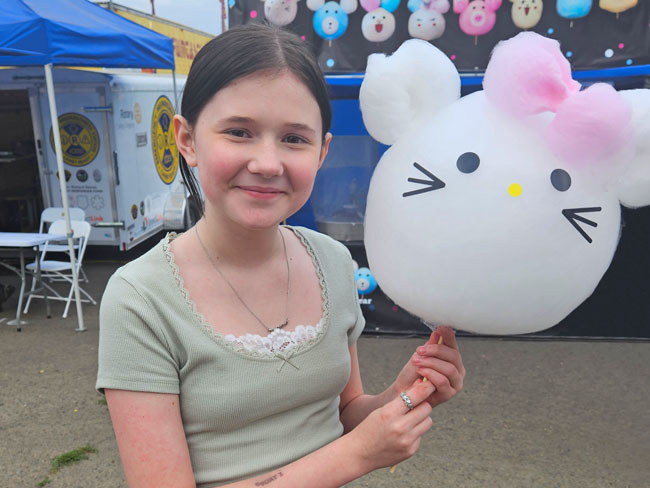
January 22, 2025
A preteen overcomes anxiety and suicidal thoughts
A young Kaiser Permanente member speaks up to gain the mental health support …
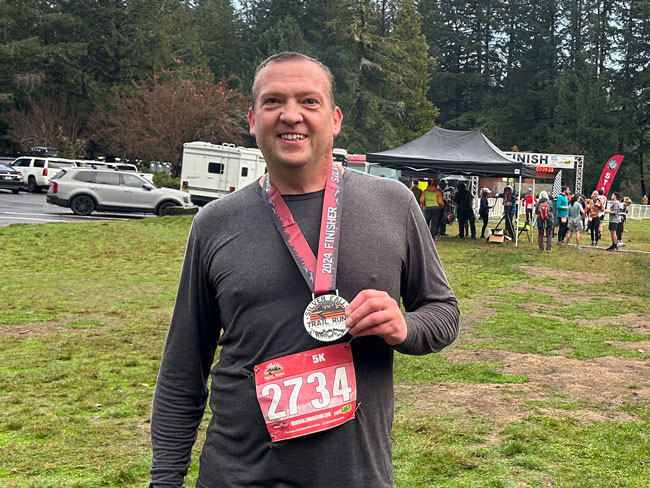
December 19, 2024
From darkness to sobriety and recovery
Once suicidal and on the verge of losing his job, Eric Jeffers has found …

December 13, 2024
How to stay happy and healthy over the holidays
Sammie LaMont Moss, MD, a psychiatrist for Kaiser Permanente in Colorado, …

December 10, 2024
Accelerating growth in the mental health care workforce
Actions policymakers can take to grow and diversify the mental health care …
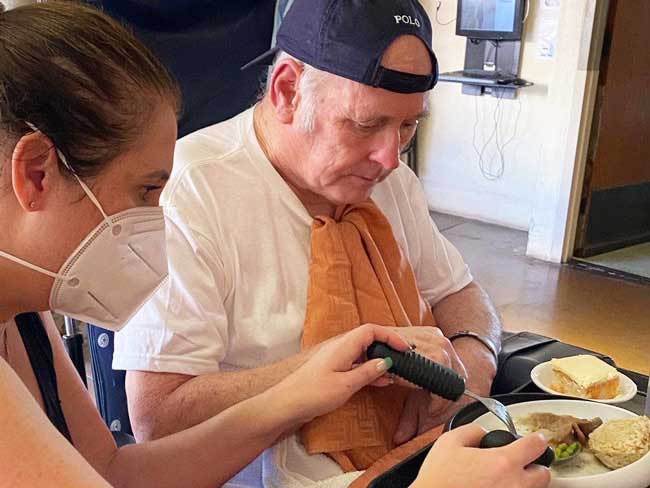
November 13, 2024
Self-care for caregivers matters: Here’s why
A sharp increase in rates of adult caregiving is taking a mental and physical …

November 4, 2024
Recruitment and retention in behavioral health
An expert’s insights on the changing mental health landscape, its impact …

October 23, 2024
Doomscrolling? It may affect your heart.
Endless bad news is just one fingertip away online. One Kaiser Permanente …

October 10, 2024
Child anxiety relief: Therapy gets a digital boost
Shiloh Sevin’s well-being improves thanks to her psychologist and the Calm …

October 8, 2024
Exploring your relationship with alcohol
If you're rethinking your habits, here are some questions to keep in mind.

October 4, 2024
Study shows new way to prevent suicides
Primary care teams can make a big difference in their patients’ lives, …

October 4, 2024
Teacher learns about herself and how to live with anxiety
A lifelong educator seeks behavioral health care to manage repetitive worries, …

October 1, 2024
From depression to connection: Older adult finds her way
After a long period of loneliness and isolation, Roberta Maguire gets the …

September 27, 2024
Youth suicide in the digital age is raising concerns
Young people face growing pressures from social media, school, and other …
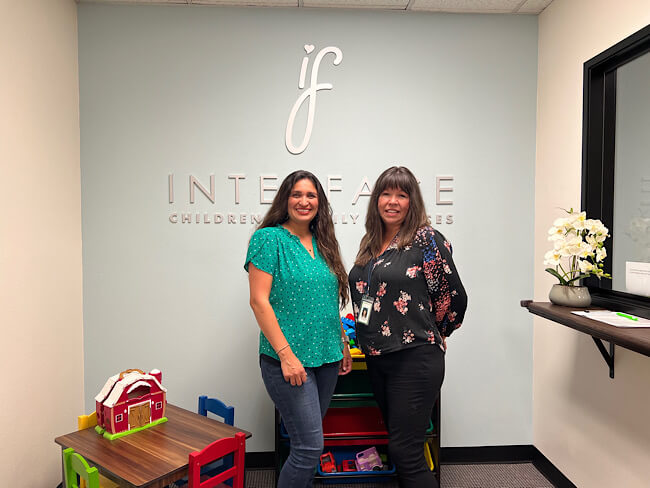
September 27, 2024
Traumatized children find mental health therapy beneficial
A Ventura County community-based nonprofit provides counselors to help …

September 17, 2024
A Latina’s voice in mental health is impactful with her clients
Connecting through a shared heritage gives one therapist a unique perspective …

September 11, 2024
Buprenorphine saves lives. Why can’t more patients get it?
Policy changes are crucial for better opioid addiction treatment.
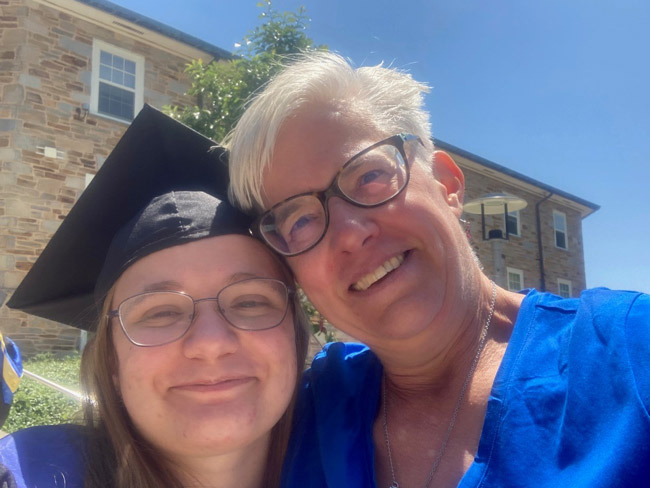
August 16, 2024
After severe depression, a ‘rainbow lit up my sky’
Shannon Parkin survived 7 suicide attempts. She shares her story of hope …

July 11, 2024
Transforming education and mental health in Watts
Our investment in the Watts neighborhood of California, in partnership …

June 28, 2024
Health Action Summit highlights mental health opportunities
The Kaiser Permanente Colorado Health Action Summit gathered nonprofits, …

June 27, 2024
5 facts about autism
A Kaiser Permanente doctor shares key details. By learning more about autism, …

June 19, 2024
Investments in Black community promote total health for all
Funding from Kaiser Permanente in Washington helps to promote mental health, …
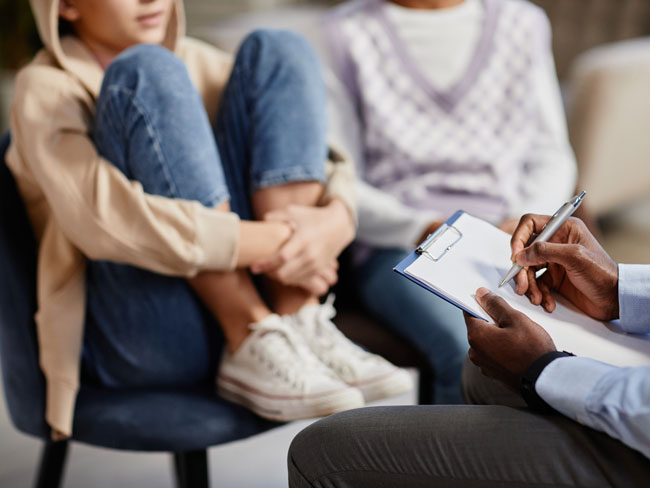
May 14, 2024
A key ally in navigating mental health care for kids
Behavioral health consultants can provide a better understanding of often …

May 10, 2024
Self-care is key for new parents
Feeling emotional or overwhelmed after a new baby’s arrival? You’re not …

May 3, 2024
Lonely and depressed — but not alone
After a lifetime of feeling isolated, Moth Wygal finds connection thanks …

April 29, 2024
Soccer star: ‘Let’s talk about mental health’
Naomi Girma, a sports ambassador for Kaiser Permanente, is passionate about …

April 10, 2024
For a new mom, talking about her worries helped her heal
One in 5 people experience depression, anxiety, or other mental health …

February 21, 2024
From planning his funeral to celebrating his wedding
Gabriel Abarca had no hope for his future. Then the team at Kaiser Permanente …

February 13, 2024
A legacy of life-changing community support and partnership
The Kaiser Permanente Watts Counseling and Learning Center started as a …

February 12, 2024
Proposition 1 would bolster mental health care in California
Kaiser Permanente supports the ballot measure to expand and improve mental …

February 2, 2024
Expanding medical, social, and educational services in Watts
Kaiser Permanente opens medical offices and a new home for the Watts Counseling …

January 29, 2024
Empowering minds to help others thrive
Supporting behavioral and mental health in communities where needs are …

January 24, 2024
A full-circle journey for one cancer survivor
Grateful for compassionate and successful Hodgkin lymphoma treatment at …

January 22, 2024
Solutions for strengthening the mental health care workforce
Better public policies can help address the challenges. We encourage policymaker …
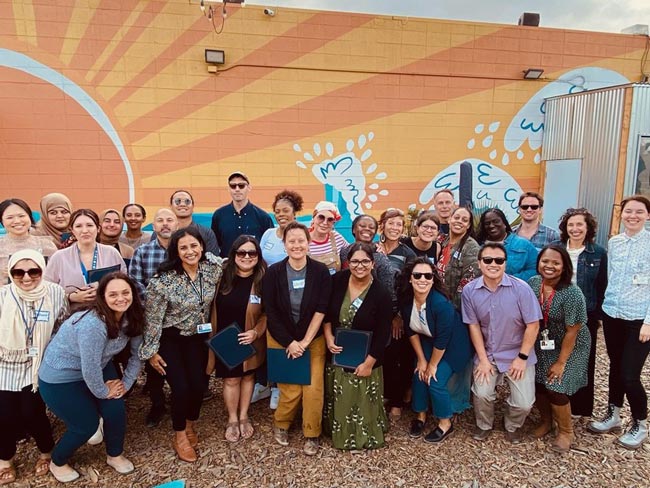
January 3, 2024
Addressing the shortage of mental health workers
There aren’t enough mental health professionals in the U.S. to meet the …

December 7, 2023
Safe, secure housing is a must for health
We offer housing-related legal help to prevent evictions and remove barriers …

November 29, 2023
Tapping into an array of mental health options
Pavan Somusetty, MD, explains how people who need support and guidance …

October 24, 2023
Childhood anxiety: What parents need to know
A child and adolescent psychiatrist shares tips on supporting your child …

October 11, 2023
Bridging the mental health gap
Kaiser Permanente’s partnership with Fontana Unified School District brings …

September 27, 2023
Harvest your power
Use biofeedback to help manage stress.

September 13, 2023
Mental health champion: A mission inspired by personal loss
San Diego Wave Fútbol Club star defender Naomi Girma, Kaiser Permanente …
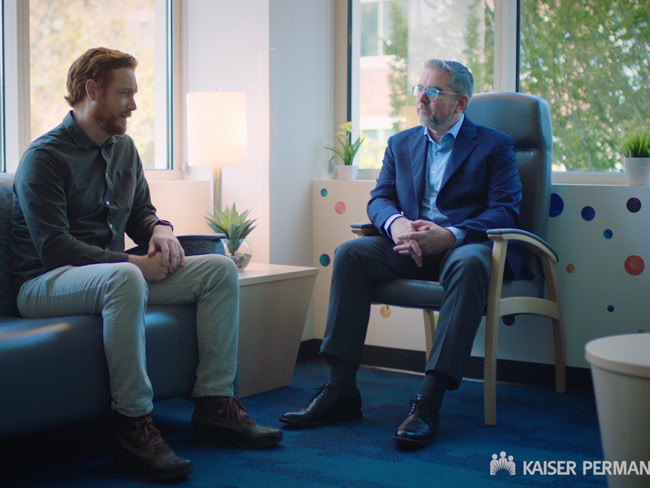
September 6, 2023
Recovery from addiction is possible
Our clinicians help patients get the care they need to move forward with …

August 28, 2023
Grants improve the total health of our communities
Kaiser Permanente increases access to mental health services in Southern …

August 22, 2023
Mental health
Expanding access to high-quality mental health services

August 10, 2023
Successfully navigating the school year
These tips from Don Mordecai, MD, Kaiser Permanente’s national mental health …

August 4, 2023
Eating well and adopting healthy habits helps prevent cancer
Learn how lifestyle medicine is part of cancer care at Kaiser Permanente.

June 30, 2023
Men's mental well-being is a priority
Unique challenges and societal pressures can impact men’s emotional well-being.

June 28, 2023
Making waves to empower young girls
Kaiser Permanente and the San Diego Wave Fútbol Club host a second Wave …

June 23, 2023
Get the mental health support you need
Kaiser Permanente is here to help with care and valuable tools to support …

June 21, 2023
And that’s why they call postpartum the blues
Take time to adjust to a new baby and lifestyle changes — and reach out …

June 9, 2023
Mental health, addiction, and the power of a peer
Shared experience helps young people in Oregon build confidence for their …

June 7, 2023
Teen social media use may lead to depression
Creating a healthy relationship with social media can help safeguard the …

June 5, 2023
Understanding and living with bipolar disorder
A Kaiser Permanente member shares his personal journey of navigating bipolar …

June 1, 2023
Policy recommendations from a mental health therapist in training
Changing my career and becoming a therapist revealed ways our country can …
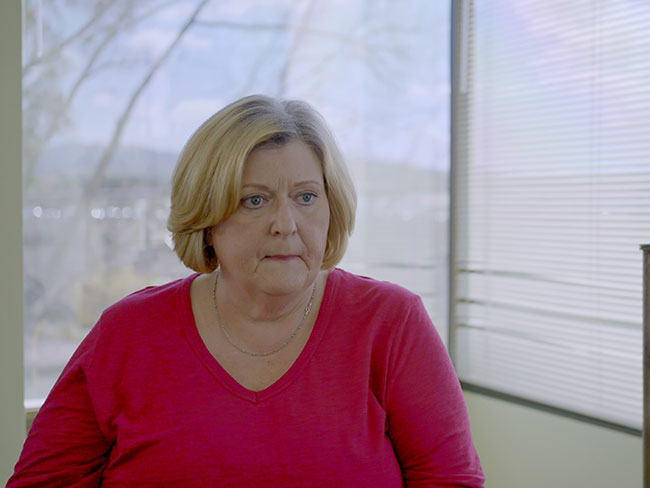
May 22, 2023
Sidelined by injury, a former nurse seeks depression care
Susan Sandhu struggled to find meaning in her life after an injury forced …
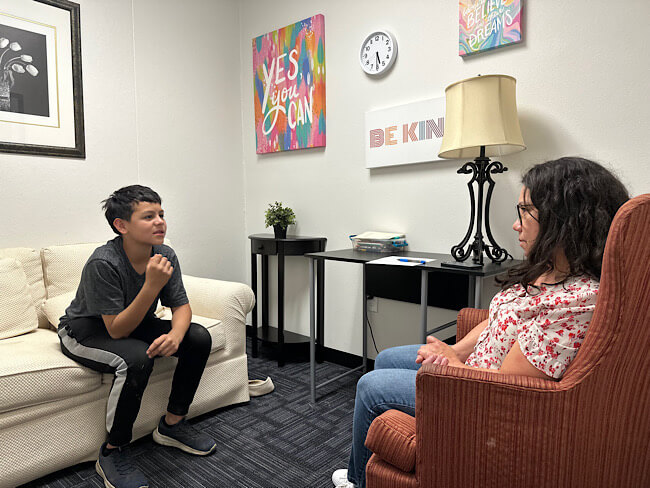
May 18, 2023
Addressing mental health trauma in a local community
Trauma-informed outreach efforts in Orange County are being recognized …

May 16, 2023
Managing trauma does not need to be traumatic
Expanded access to high-quality, affordable mental health care supports …

May 9, 2023
School shootings provoke anxiety in many children
Child psychiatrist defines anxiety, its symptoms, how to address it, and …
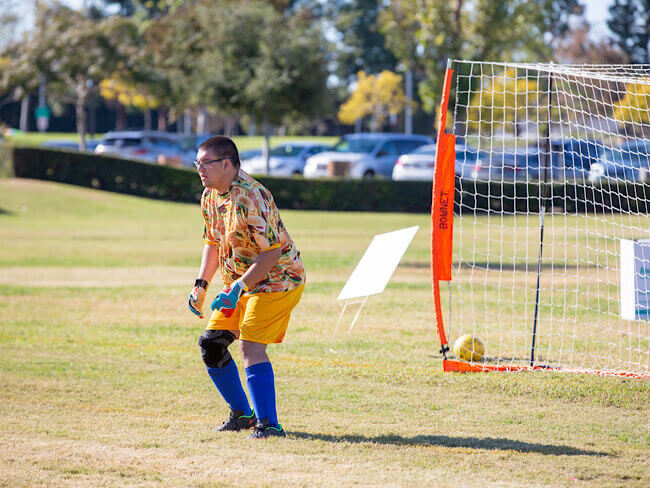
March 29, 2023
Volunteering helps create healthier communities
Kaiser Permanente’s partnership with Special Olympics Southern California …
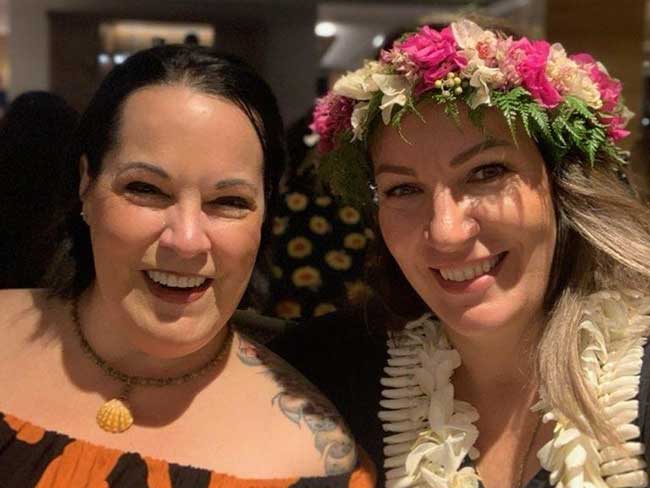
March 24, 2023
Finding hope after a mental health and addiction crisis
Treatment for bipolar disorder and opiate addiction helps a Kaiser Permanente …

March 16, 2023
Supporting our children after acts of mass violence
Southern California psychiatrist offers practical advice for parents to …

March 13, 2023
Making waves with our first female sports ambassador
Kaiser Permanente in Southern California partners with San Diego Wave Fútbol …
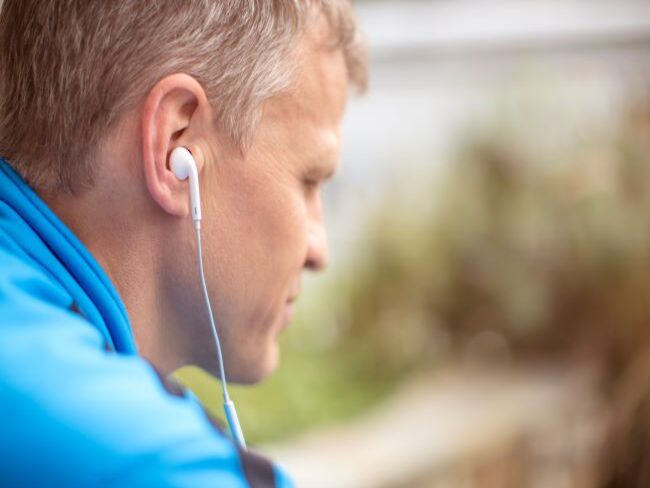
March 7, 2023
For moments when you may not need to see a therapist
Kaiser Permanente provides members with convenient ways to improve their …

February 24, 2023
Nurturing expectant moms who have substance use disorders
Project Nurture in Portland, Oregon, provides treatment and a path forward …

February 23, 2023
Eating disorders on the rise among teens
Expert shares 5 valuable tips for parents and guardians to help children …
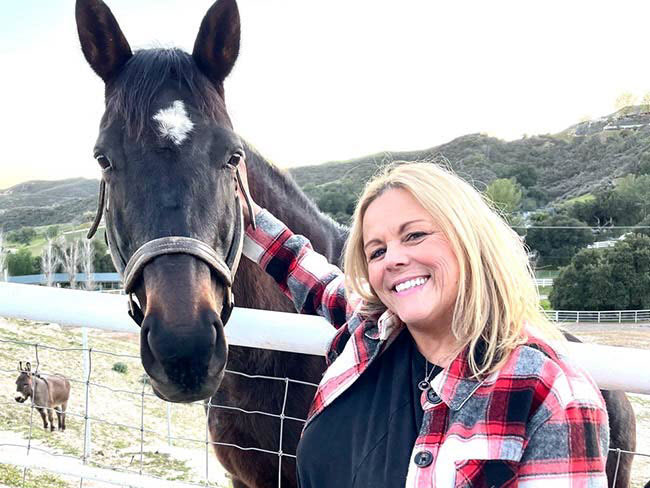
February 7, 2023
Employee honored for her dedication to our communities
Valerie Dionne wins our 2023 George Halvorson Community Health Leadership …

February 2, 2023
Addressing social isolation in the Northwest
Kaiser Permanente invests $3.3 million to build healthy social connections …

January 19, 2023
Understanding stress and how to manage it
A Kaiser Permanente psychiatrist shares advice for coping when stress won't …

November 14, 2022
It’s time to rethink health care quality measurement
To meaningfully improve health equity, we must shift our focus to outcomes …

September 7, 2022
How you can help prevent suicide
When someone you care about is struggling, it can be hard to know what …

August 29, 2022
For student athletes, mental wellness is a game changer
A sports medicine physician and mental health therapist discuss the mind-body …
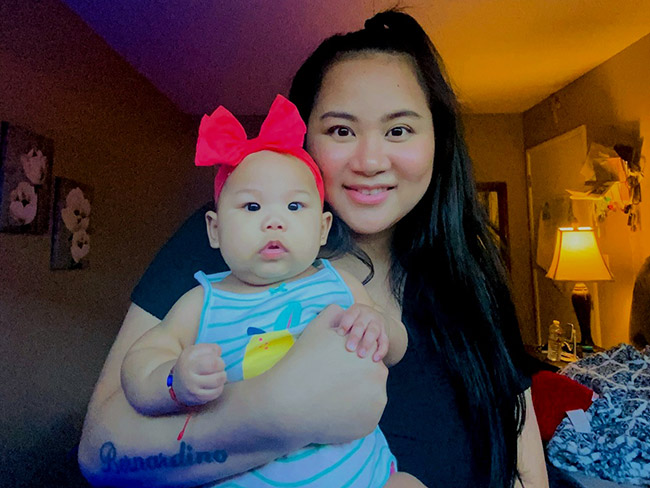
August 3, 2022
Supporting new moms in the postpartum period
By reaching out early and providing care that’s personalized to parents’ …

June 23, 2022
Collaborative care for serious mental health conditions
An innovative telehealth program gives patients direct access to pharmacists …

June 16, 2022
Leadership and innovation to prevent gun injuries and deaths
Kaiser Permanente’s new Center for Gun Violence Research and Education …

May 29, 2022
Gun violence is a public health crisis. A preventable one.
We must do more to prevent gun violence and educate on its health implications …

May 25, 2022
Be a source of comfort and calm
Trusted conversations help youth feel safe when community violence occurs.
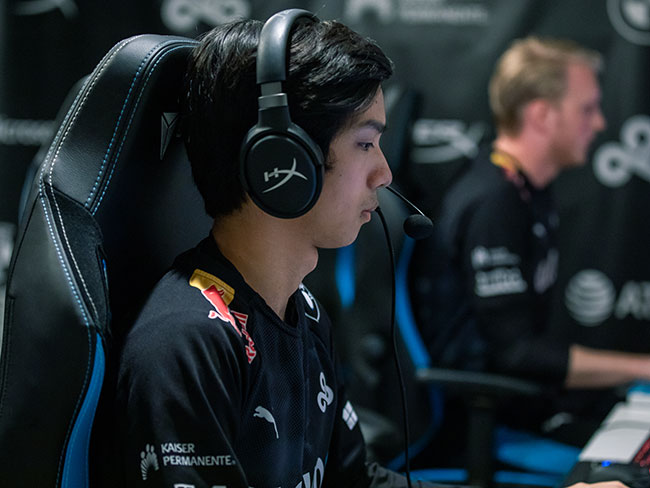
May 18, 2022
Initiative improves mental health in gaming community
Newly released results show the Presence of Mind initiative can be an effective …
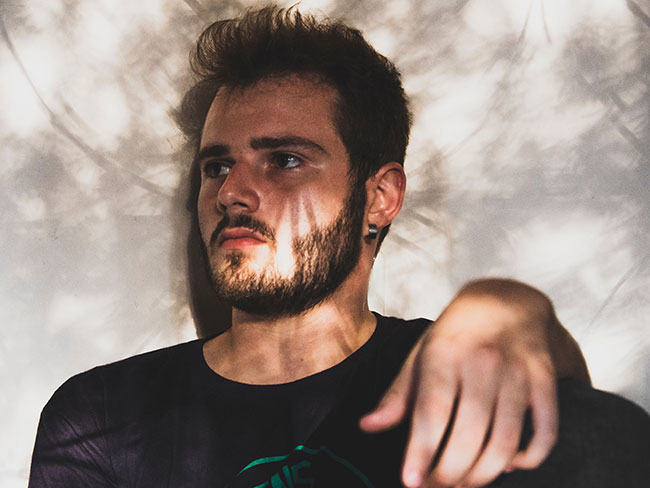
May 3, 2022
One pill can kill: Understanding the risks of fentanyl
As overdose deaths skyrocket, an addiction medicine specialist explains …

May 2, 2022
How to transform mental health care: Follow the research
We applaud President Biden and Congress as they begin to set policies that …

March 4, 2022
Online quiz helps predict likelihood of teen substance use
Assessment helps parents and caregivers intervene early when kids are at …
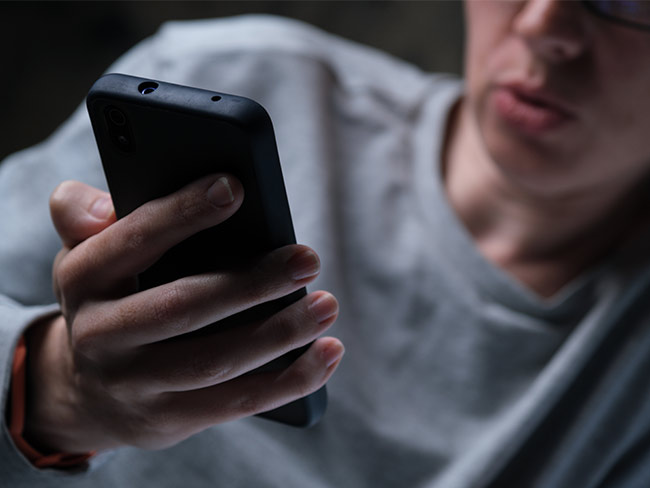
October 28, 2021
When things fell apart, telehealth was her lifeline
Stuck at home during the pandemic, a Kaiser Permanente member with autoimmune …
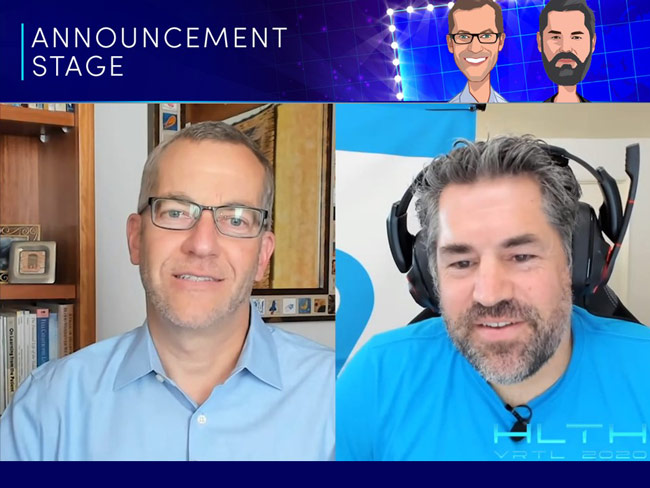
October 27, 2020
Sharing an innovative approach to youth mental health
Don Mordecai, MD, Kaiser Permanente’s national leader for mental health …